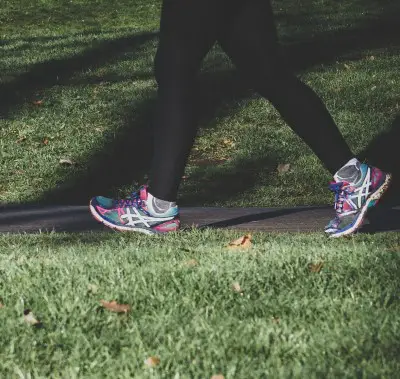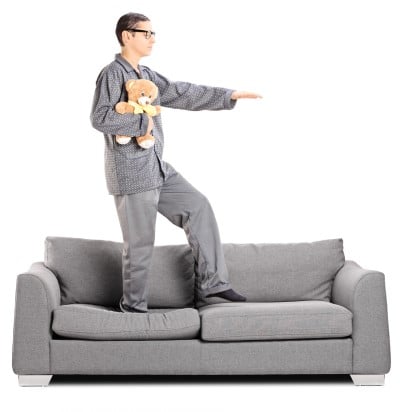
Can stress cause you to sleepwalk? – What we know and 9 practical remedies
By Jason Wooden, PhD | December 15, 2021
Sleepwalking has long been considered to be a result of genetics and triggering factors. Evidence for a link to stress includes case reports and clinical studies in which stressful events was found to be a factor for up to 60% of sleepwalkers.
To prevent sleepwalking, your options include stress management, relaxing pre-bedtime activities, exercise, deep breathing, counseling, and various other natural remedies. You should also see a doctor to check for other risk factors such as medical conditions and medications.
In this article, we’ll talk about:
1) Why it’s not so crazy
2) What stress does to the body, mind, and sleep
3) Can stress REALLY cause you to sleepwalk?
4) 9 remedies to keep stress for triggering sleepwalking
5) Other remedies worth a try
Why it’s not so crazy that stress could cause someone to sleepwalk
Let’s be clear – you’re certainly not the first to wonder whether there’s a link between stress and sleepwalking.
And you’re likely not the only one looking for answers to sleepwalking since 20% of kids 8 to 12 years old and 4% of adults have done it at some point.
Sleepwalking is when someone walks or do other activities while not fully awake.
To say the least, it can be pretty unnerving and in some situations may pose a safety risk leaving people scrambling for answers.
Maybe you’ve noticed that when someone you know (or yourself) sleepwalks it’s usually after a stressful event or during a trying stretch of life.
As far as stress goes, there’s plenty of it out there – stress from work, school, family, money issues, and the many things in society seemingly out of our control.
According to polls, 35% of people say they’re stressed during the day. (The same poll found it to be as high as 55% in the US!)
Would you believe stress is a factor for 60% to 80% of patient visits to primary care doctors?
It should be no surprise that the COVID pandemic has notched up the stress level for millions of people.
So, there’s plenty of stress going around and doctors are seeing it’s effects in the clinic.
Sounds like you’re possibly seeing it’s effects at night for someone you know or yourself.
We know stress does all sorts of things to the body and mind, so it’s not so crazy it could be causing someone to sleepwalk too.
Whether it’s a child, spouse, roomate, or yourself, you need to know what you’re up against and some answers.
Let’s take a look at what we know and what you can.
What stress does to the body, mind, and sleep
Your mind, brain, and body can interact in powerful ways that affect health and wellness.
Stress is a feeling of emotional or physical tension. It can be a feeling of being overwhelmed or unable to cope with pressure.
Your body reacts to stress by releasing hormones which make your brain more alert and cause muscles to tense.
Occasional stress and anxiousness is a normal thing. It’s when it keeps happening and at the wrong time you can really get in trouble.

We all know from personal experience how hard it is to fall asleep with a racing mind.
As you get more and more stressed out, your body may turn on the fight-or-flight response and pump out stressed hormones designed to get you in a heightened state of arousal.
That will make it harder to fall asleep AND harder to stay asleep.
Stress is also linked to anxiety and depression.
And those stress hormones can affect the body in other ways too since it’s a common risk factor for 75% – 90% of diseases.
The excessive inflammation triggered by their release plays a role in life threatening health issues such as heart disease, high blood pressure, and diabetes.
Stress can even make pain and body aches worse which is a serious sleep wrecker all by itself for millions of people.
Given all these mind-body affects, it’s not so crazy that stress could do things to cause someone to sleepwalk.
Can stress REALLY cause you to sleepwalk?
Okay, now that we’ve looked at all the mind-body connections, you’re probably wondering how serious is the connection between stress and sleepwalking.
While it hasn’t been as well studied as you would think, sleep-walking has long been considered to be a result of genetics and triggering factors such as stress.
The evidence for stress being involving includes:
- Individual case reports showing that psychological factors can trigger sleepwalking episodes
- A small study of 52 sleepwalkers in which researchers in Prague found that the most common self-reported triggers were sleep deprivation and stressful events.
- A case-controlled study of 140 sleepwalkers in which stressful events was again found to be a triggering factor for 51% of the patients.
- An even bigger study with 193 sleepwalkers also found stressful events and sleep deprivation to be a triggering factor for 60% of patients
As far as how it’s connected, they’re still figuring out what’s going on in the brain.
Sleepwalking usually occurs during the deepest stages of NREM sleep. Normally the brain is not able to issue commands to the muscles.
For some reason, in sleepwalkers the brain is partially awake and it’s able to signal your body to do things.
All the same, there’s good evidence that stress can trigger and worsen sleepwalking. It’s also bad for sleep and your body too.
Signs stress is affecting you:
- Diarrhea or constipation
- Forgetfulness
- Frequent aches and pains
- Headaches
- Lack of energy or focus
- Sexual problems
- Stiff jaw or neck
- Tiredness
- Trouble sleeping or sleeping too much
- Upset stomach
- Use of alcohol or drugs to relax
- Weight loss or gain
Source: MedlinePlus
9 Things worth a try to keep stress from causing someone to sleepwalk
If you suspect stress is a trigger for the sleepwalking you experiencing, the good news is that there are plenty of things you can do about it.
Some are simple changes you can make right away while others may require an investment of time or money.

1) Stress management
What’s your current level of stress?
Depending on the specific causes, there’s lots you can do:
Regular sleep – people who sleep poorly are more stressed once awake
Avoiding unnecessary stress – set boundaries around people and commitments
Set aside time for fun activities
Mindset – how you think about things and react to them can have a big impact
Manage expectations – be realistic about what you can do
Live within your means – can help keep the financial stress down

2) Maintain a relaxing pre-bedtime routine
Make it a rule that there’s timee to unwind at night. Find some relaxing activities whether it’s reading or something else.
The important thing is to stay away from anything that can make the transition to sleep harder.

3) Relaxing music
Speaking of relaxing activities, calming music has been shown in studies to reduce stress and anxiety. It can also help you fall asleep faster and sleep better.
What you want is music that will sooth you to sleep, not something that will get your heart racing. Slow rhythm songs (60 to 80 beats per minute) is what’s been shown in studies to improve sleep.
Popular choices include classical and new age music. You may have to experiment a little to figure out what works best for you.
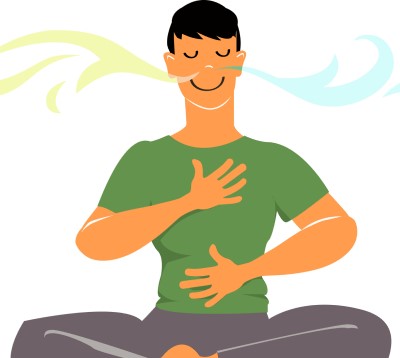
5) Deep breathing
Deep breathing is a simple way to calm the body. One popular technique is 4-7-8 breathing pioneered by Dr Andrew Weil.
It involves holding your breathing to various counts of 4, 7, and 8.
Learn more: The 4-7-8 breathing technique (MedicalNewsToday.com)
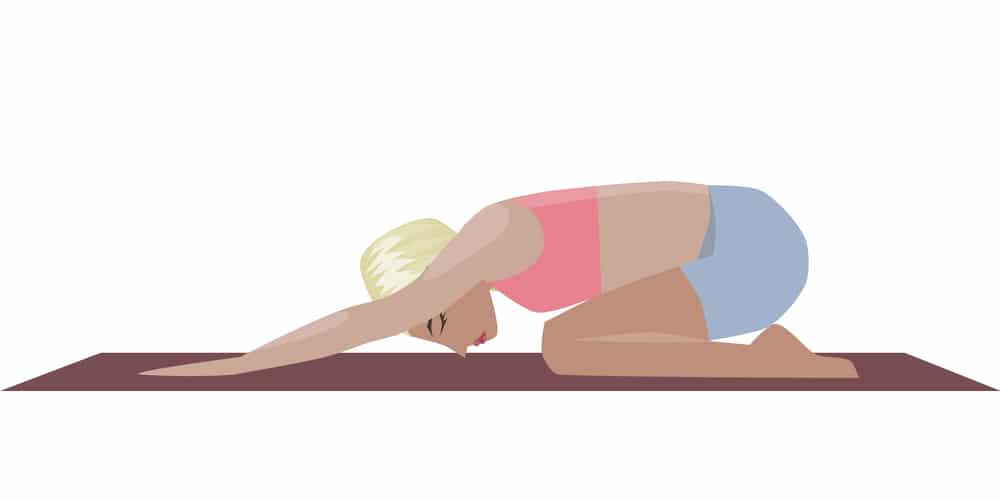
6) Light stretching
Light stretching can relax the body and mind.
Learn more: 8 Stretches for Your Best Night’s Sleep (SleepAdvisor.org)
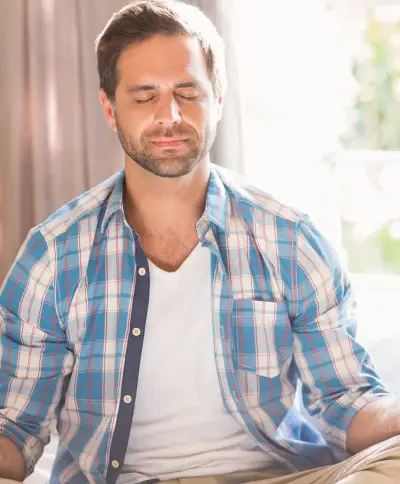
7) Meditation
Mindfulness meditation is a mind-calming technique that involves focusing on your breathing and keeping your awareness on the present moment. It’s a simple way to fight stress.
Learn more: Basic meditation for stress management (Verywellmind.com)

8) Natural relaxation aids
Extracts made from various plants have been found to be helpful as natural relaxation remedy.
Among the more popular aids are chamomile, lavender essential oils, and valerian. However, there are new comers to seen such as turmeric and CBD oil.
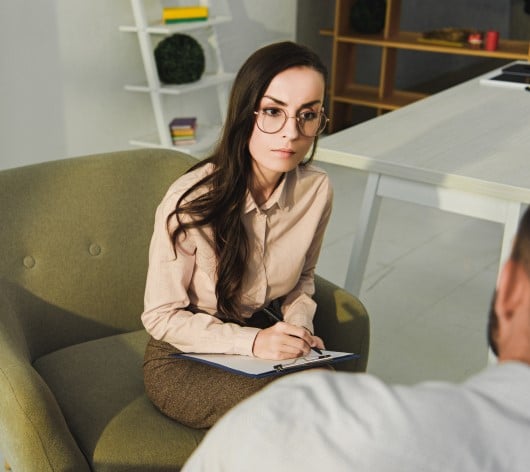
9) Counseling
It’s hard to relax when your over-stressed, anxious, or depressed.
It’s pretty obvious to most people how stress and anxiety can become the enemies of peacefulness.
Depression can be just as bad. It can make it hard to relax, especially if it leaves you restless, agitated, or irritable. And unfortunately, anxiety is also a common symptom of depression.
A type of counseling known as cognitive behavioral therapy (CBT) has been shown to helpful for treating stress, anxiety, depression, and insomnia.
It focuses on identifying negative thoughts and developing healthier ways of thinking to respond to challenges more effectively.
5 Other things besides stress prevention you can do for sleepwalking
You should keep in mind that stress isn’t the only thing that can cause or worsen sleepwalking.
They’re plenty of other triggers that could be making things worse including poor sleep, medical issues, medications, and mental health challenges.
That means that they’re plenty of other things you can add to the mix that can help with sleepwalking:
Get regular sleep:
Since being overtired is a known trigger, it’s important for a sleepwalker to get the best sleep they can every night. Start with sleep hygiene, the everyday things that set the stage for quality sleep.
For better sleep hygiene, you should:
- keep consistent wake up & sleep times
- avoid naps
- exercise during the day
- avoid large meals, alcohol, or stimulants such as caffeine before bedtime
- maintain a regular bedtime routine
- avoid using TVs, laptops, or other electronics before sleep
- keep your bedroom dark, cool, quiet, & relaxing
Avoid alcohol:
Since alcohol may trigger sleepwalking, it should be consumed earlier in the day to avoid drinking before bed. Another reason to avoid alcohol at night is that it causes your sleep to be more shallow.
Anticipatory awakening:
This involves waking up someone about 15 minutes before they usually sleepwalk. The person then stays awake for a few minutes before falling asleep again.
Sleepwalking prevention devices:
Your choices include gates, safety door locks, bedroom door alarms, motion sensors, and floor mat alarms.
Get a check up:
I’ve already mentioned the wide variety of health issues and medications that have been linked to sleep walking. A doctor can check for these underlying risk factors and help you figure out what you can do about them.
You may also be interested in:
5 sleepwalking prevention devices worth a try
Useful sleepwalking aids and prevention devices
Can sleeping pills help with sleepwalking?
Can CBD help with sleepwalking?
Is sleepwalking a sign of something more serious
Is sleepwalking a sign of mental illness?
Can prescription meds cause sleepwalking? – 8 remedies
17 sleep-friendly ways to wind down before bed
5 things to know about cognitive behavioral therapy (CBT) counseling
Sources:
1. “Preventing Sleepwalking: Scientific Findings to Help Stop a Chronic Sleepwalker”, 2018, Amerisleep website
2. Polysomnographic diagnosis of sleepwalking: effects of sleep deprivation. Ann Neurol. 2008 Apr;63(4):513-9.
3. “Sleepwalking”, MedlinePlus
4. “42 Worrying Workplace Stress Statistics”, 2019, Stress.org
5. When Physicians Counsel About Stress: Results of a National Study. JAMA Intern Med. 2013 Jan 14;173(1):76-7.
6. “Stress and your health”, MedlinePlus
7. Inflammation: The Common Pathway of Stress-Related Diseases. Front Hum Neurosci. 2017; 11:316.
8. “5 Things You Should Know About Stress”, NIH website
9. Functional Impairment in Adult Sleepwalkers: A Case-Control Study. Sleep. 2013 Mar 1; 36(3): 345–351.
10. Sleepwalking and night terrors: psychopathological and psychophysiological correlates Int Rev Psychiatry. 2005 Aug;17(4):263-70.
11. Psychological Treatment for Sleepwalking: two case reports. Clinics (Sao Paulo). 2011 Mar; 66(3): 517–520.
12. The Course and Character of Sleepwalking in Adulthood: A Clinical and Polysomnographic Study. Behav Sleep Med. 2015;13(2):169-77.
13. Functional Impairment in Adult Sleepwalkers: A Case-Control Study. Sleep. 2013 Mar 1; 36(3): 345–351.
14. Is Restless Legs Syndrome Involved in Ambulation Related to Sleepwalking? Sleep. 2016 Apr 1; 39(4): 955–956.
15. “Exercising to relax”, 2020, Harvard Health Publishing
https://www.health.harvard.edu/staying-healthy/exercising-to-relax
16. Why Cognitive Behavioral Therapy Is the Current Gold Standard of Psychotherapy. Front Psychiatry. 2018; 9: 4.
Connect with us:
About Us
Better Sleep Simplified® was founded as a place for you to get clear and well-researched information.
Our goal is to make sure you know about your options so that you take action sooner rather than later.
Check us out on YouTube:
Watch and Learn
Helpful sleep tips, interesting sleep facts and statistics you want to know about
Affiliate Disclosure
This site is a participant in the Amazon Services LLC Associates Program and other affiliate advertising programs designed to provide a means for sites to earn advertising fees by advertising and linking to them.
Important: BetterSleepSimplified.com is for informational purposes only and is not intended or implied to be a substitute for professional medical advice, diagnosis, or treatment. Always consult a physician for sleep and health concerns. See additional information.

